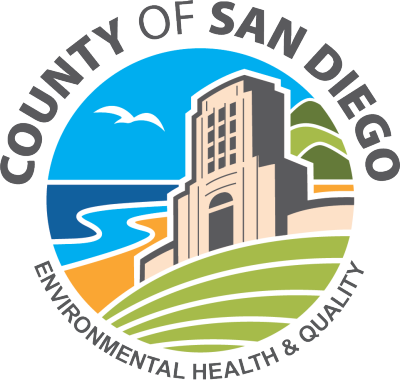Protecting the environment and enhancing public health by preventing disease, promoting environmental responsibility and, when necessary, enforcing environmental and public health laws.
Environmental Health and Quality
2023-24 Adopted Budget $63.9M
DEHQ
inspects restaurants, markets, and food vendors to prevent foodborne
illness, conducts mosquito surveillance and control to help reduce
mosquito-borne diseases, inspects businesses to ensure hazardous
materials and waste are properly managed, and ensure water is safe
for public recreation by collecting water samples at beaches and
bays and inform the public when there is a health risk if recreating
in the water.
Protecting the Climate & Natural Resources $3.5M

- Protect groundwater quality by reviewing approx. 750 septic
system design layouts, conducting 874 installation inspections, and
issue 296 water well construction and deconstruction permits $3.4M
- Reduce Greenhouse gas emissions (fleet and solar) - EV conversions $0.1M
Supporting How You Live, Work & Recreate $1.8M

- Housing Support: Permit and inspect 187 mobilehome and recreational vehicle parks in unincorporated areas to ensure safe and livable conditions $0.5M
- Housing Support: Permit and inspect approximately 1,976 housing sites, including 74,132 apartment and hotel units to ensure safe housing $0.4M
- Housing Support: Accessory Dwelling Unit (ADU) Septic Fee Waivers $0.4M
- Non Profit Organizations and Veterans Permit Fee Waivers $0.4M
- Charitable Feeding Fee Waivers $0.1M
Empowering the Community $2.2M

- Train team members on equity, diversity, and inclusion topics $0.6M
- Use data to understand and track community needs (Community Needs Assessments) $0.5M
- Policy: resources to monitor changes in regulations, develop policy and coordination with other jurisdictions $0.4M
- Permit and educate applicants on Micro Enterprise Home Kitchens
operations $0.2M
- Involve the community in our programs through meeting and online options $0.3M
- Translate information into eight languages $0.2M
Protecting Health $53.3M

- Permit over 14,000 hazardous material facilities and perform more than 6,400 inspections to ensure hazardous materials are properly managed and provide outreach $14.0M
- For Hazardous Incident Response Team (HIRT) to provide emergency response to 472 incidents $2.2M
- Conduct 479 solid waste inspections at 60 active permitted solid waste facilities, transfer stations and 52 closed landfills or burn sites to ensure health and safety to surrounding communities $1.2M
- Inspect over 4,200 public swimming pool sites to reduce potential for pool drowning or experiencing recreational water illness $3.1M
- Conduct over 460 inspections of facilities with radioactive
materials/x-ray machines to ensure the safety of the public,
workers, and the environment $1.2M
- Monitor and treat as needed over 1,600 known mosquito breeding sites $15.0M
- Test water quality at 45 beaches/sites and provide faster same-day results $1.6M
- Inspect over 15,700 food facilities including food trucks for safety, 530 temporary events, conduct 1,200 compliant investigations and 520 foodborne illness investigations $15.0M
FY 23-24 Summary
Budget in Millions
$63.9M
Change from FY 22-23 is 5.8%
Team Members
344
Change from FY 22-23 is 3.3%
Agriculture, Weights & Measures, Environmental Health
& Quality, Parks & Recreation, Planning
&
Development Services, Public Works, San Diego County Library as
well as the Office of Sustainability & Environmental Justice.






